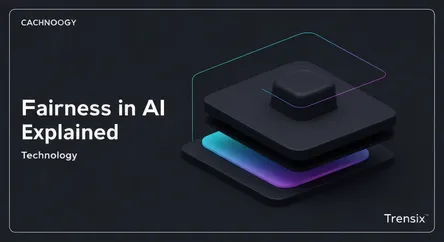Technology
Fairness in AI Explained

Discover what AI fairness means, why it's crucial for avoiding bias in algorithms, and how it impacts society and automated decision-making.
What is it?
Fairness in AI is a multidisciplinary field dedicated to ensuring that artificial intelligence systems do not create or perpetuate unfair biases. It focuses on building algorithms and models that make impartial decisions, free from discrimination against individuals or groups based on characteristics like race, gender, age, or disability. This involves critically examining training data for hidden biases, developing techniques to measure and mitigate unfairness in model outputs, and creating systems that are both transparent and accountable for their automated judgments.
Why is it trending?
As AI becomes deeply integrated into critical sectors like finance, healthcare, and employment, its potential for harm has become a major concern. High-profile incidents of biased AI—from discriminatory hiring tools to flawed facial recognition systems—have highlighted the urgent need for ethical guidelines. This has spurred a global conversation among policymakers, researchers, and the public, leading to increased demand for trustworthy AI and the development of new regulations. Companies are now prioritizing AI fairness not just for compliance, but to build user trust and ensure their technology has a positive societal impact.
How does it affect people?
Unfair AI can have profound real-world consequences. It can lead to qualified job applicants being overlooked, individuals being unfairly denied loans, or biased outcomes in the criminal justice system. These automated biases can reinforce and even amplify existing societal inequalities, eroding trust in technology and institutions. Conversely, a commitment to AI fairness helps ensure that technology promotes equity and equal opportunity. It means building systems that serve everyone justly, making automated decision-making a tool for positive change rather than a source of digital discrimination.